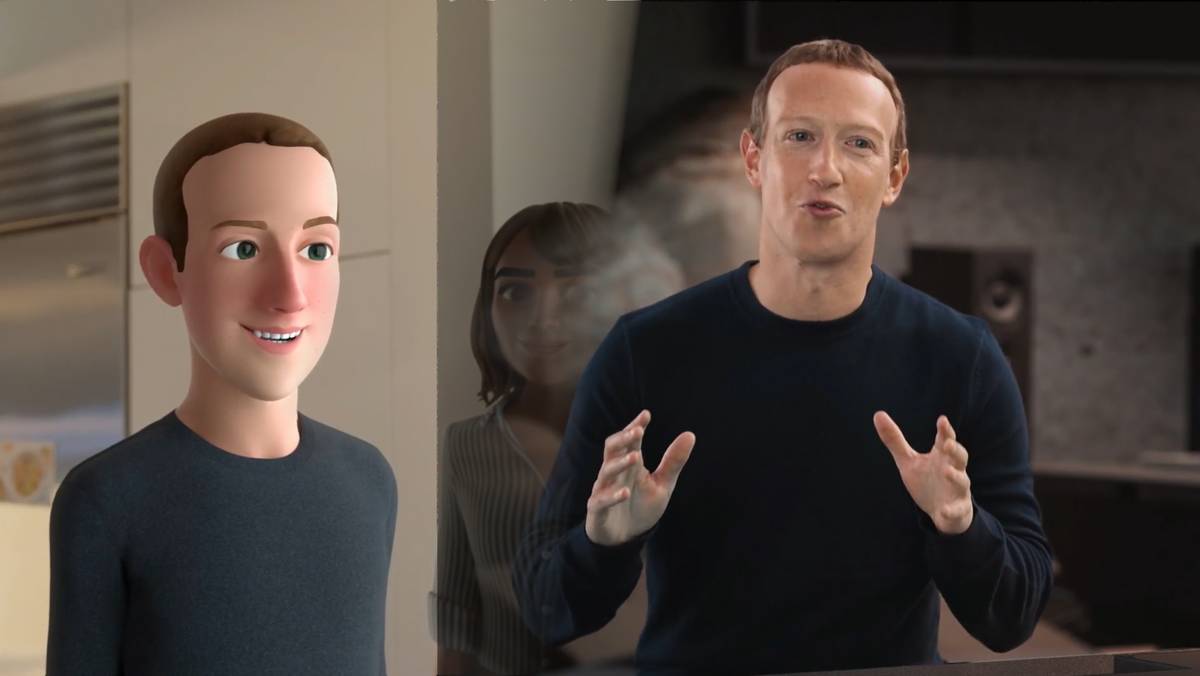The Metaverse have recently added legs to the avatars, and it looks less than impressive. The animations are wonky and the avatars are ugly. It’s reflective on how Zuckerberg is starting to fall behind. Facebook was relevant once, but now that the internet and technology have grown into an immense monster with endless possibilities, just being a dude doesn’t cut it anymore. The youth has long since lost their interest in Facebook, and making Facebook but with avatars isn’t going to change this. Zuckerberg’s metaverse doesn’t give the opportunity for creative expression of identity despite being so technologically advanced.

Facebook’s downfall
Contemporary and next-generation internet users don’t care about Facebook. Its downfall wasn’t caused by data scandals, leaks and human rights violations. No, Facebook is boring. It’s populated by older generation internet users. By parents and the aunt you don’t want to talk to. Maybe there’s a stray millennial here and there, but Gen Z and onwards have moved on to other platforms such as TikTok and Twitter. Platforms where you can express your identity in more ways than posting a picture of your lunch, or updating your status to ‘Walking my dog,’ which your parents can involve themselves in because Facebook is what they use the most.
When it was launched and growing, Facebook pushed the limits of the internet and social media, succeeding where other platforms failed. It laid the foundation for modern social media platforms and usage and that relevance should neither be forgotten nor discredited. However, Facebook became public in 2006. When we were still using Nokias and flip phones and VHS tapes. We’ve moved on to advanced touchscreens and online streaming services, and internet users have moved on to different platforms. Platforms where you can be anonymous, for as much as you can be anonymous on social media. YouTube and TikTok aren’t restricted to your real life social circles. You can follow anyone from all over the world, interact with them as much as you like, have all the fame just by being witty and creative without ever having to reveal who you are.
K-pop band BTS owes a lot of their fame to their avid Twitter usage, where they could easily be followed and follow anyone, and interact with fans all over the world without being restricted to the real-life social circles that Facebook imposes.
Now, I am not saying that TikTok or Twitter are good sites. I’ve been an avid user for both and it has damaged my brain. However, they are excellent illustrations of what Facebook lacks. Facebook wants you to verify your identity, but in a world of globalisation and gender deconstruction, who wants to be restricted?
What users do want
Zuckerberg, perhaps aware he’s falling behind, purchased VR company oculus and presented the meta-verse: A completely-online 3D society with your own avatar. The concept of having an online avatar, of existing in an alternative universe, isn’t new. Let’s take a look at the world’s most popular online role playing games: World of Warcraft, Skyrim, Roblox and Runescape.

Though each of them is different from the other, all are wildly successful role playing games where the player can create their own character to then proceed into an online society. Typically, these online societies are fantasy and sci-fi inspired. More importantly, there are no restrictions on who you can be. Creative expression is what they all have in common. These games are limitless in their quests, interactions with other players, and open world exploration. You can be something more, something different that real life can’t offer you. Explore aspects of your identity that the flesh-and-bone version of you cannot.
In all of these games you’re controlling your own character and interacting with other players and characters. You may or may not be in a different world, with different politics and morals, and you can ask yourself what you would do. Challenge yourself to actions and thoughts you would never be confronted with otherwise. Another bonus? You’re a huge man with horns. You’re a small fairy with magical hands. You’re a knight fated to save the world. You can look completely different, aesthetically express yourself in ways you cannot do (often) do in real life.
Are these games the best games in the world? Maybe not. Are these games appealing for everyone? I don’t think so. However, these games allow limitless creative expression. They allow users to cultivate both their offline and online identity through an online alternate universe. Being a sexy elf is a pro, no doubt, but more importantly is that these platforms provide what real life cannot.
This is what the metaverse is probably striving for, or should be striving for. In Zuckerberg’s metaverse, you can only be a dude with a grey shirt on. A lady in heels. Where, exactly, are users supposed to be intrigued or challenged? How do we express ourselves? By waving at a neighbour? I can do that in real life, and I won’t feel any type of bliss. If anything, the metaverse seems like a rich-person playground with how much money it costs to enter. Warcraft is free, and my avatar looks cooler too. Zuckerberg has missed the mark, his understanding of social media and its users, and his metaverse shows this. Where his initial success was in restricting users to purely showing their own identity and not faking anything, he now falls behind precisely because of that.
So… Can I go back to roleplaying online as a mystical maiden in a world full of dragons now? I wear grey shirts in real life, and I don’t want my online life to be the same.



Recent Comments